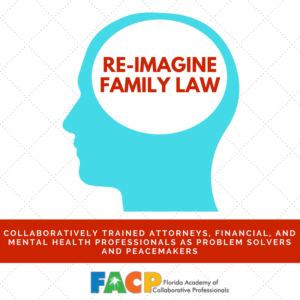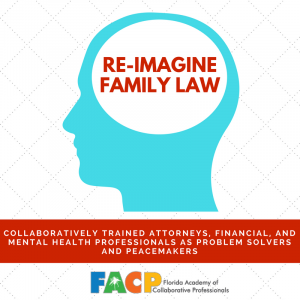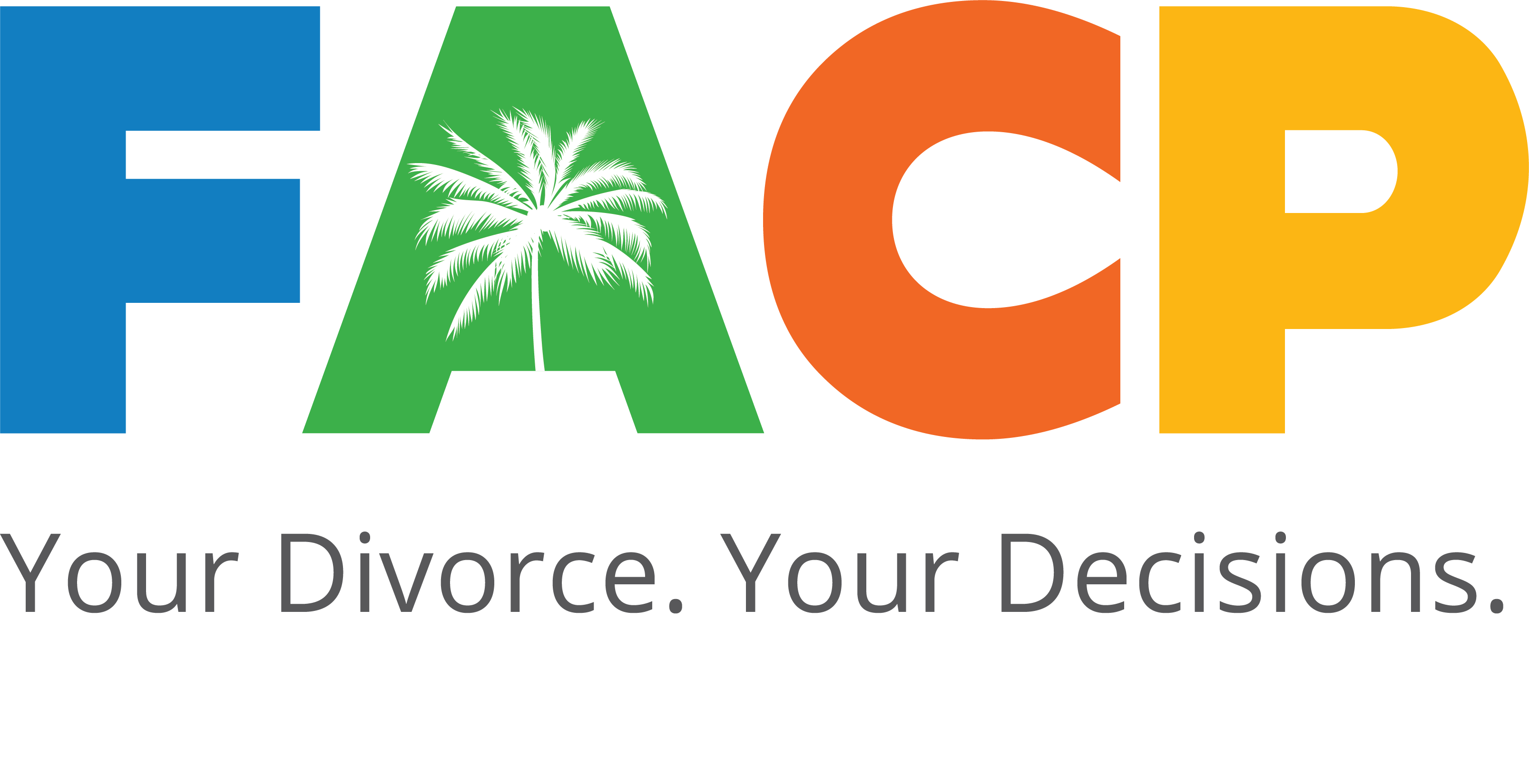
Family disputes represent the largest number of new cases filed in circuit courts throughout Florida. In the 2015/2016 year, the Florida Office of State Courts Administrator reported more than 288,000 new family law cases opened. Of that number, 82,000 were actions dissolution of marriage, outpaced only by orders for protection against violence. (Jameson et al., 2015-2016, p. 5-2, 5-3). Though time and costs vary widely depending at least in part on the complexity of the matter, selection of process, and attorney experience, at least one source estimates the average divorce in Florida takes fifteen months and costs $13,300 (Martindale-Nolo Research). Despite the time and cost invested, emotional and financial issues are often left unresolved, as is evidenced by the 223,000 domestic relations cases that were re-opened in 2015/2016, primarily for modification and enforcement (Jameson et al., 2015-2016, p. 5-22).
What role do the professionals play in this? Mental and behavioral health professionals are asked to take positions as experts, often contributing to the already heightened sense of hurt, frustration, and failed communications between family members. Financial professionals are asked to utilize their expertise to justify polarized positions. And what about the lawyers? Many go to court the same way one would go to war – leading a battalion of well-prepared witnesses and highly trained experts into battle armed with evidence designed to obliterate the enemy. Unfortunately, the “enemy” is the family – most often permanently linked to each other by a shared past, children, extended family, and intertwined finances. As a result, no one wins.
Now imagine something different. Let’s take all that professional talent and re-direct the emotional energy and financial resources available to the family to build a highly effective interdisciplinary team focused on identifying common goals and creating options for re-structuring the family in transition. That’s Collaborative Law.
The collaborative process is now law in Florida. (§61.55-61.58, Florida Statutes). It is a voluntary process chosen by the clients, each represented by separate, collaboratively trained attorneys. The clients and attorneys, along with other collaborative professionals chosen to participate as process facilitators, child specialists, if needed, and financial neutrals, enter into a participation agreement which includes a withdrawal provision that prevents the attorneys or other professionals from participating in any future litigation between the clients. This team takes part in a series of problem solving meetings which result, ultimately, in a marital settlement agreement or some other final consent agreement. Along the way, the professional team assists the family by educating them about financial matters, co-parenting, child development, and communication techniques that will help them transition from their current life and relationship to something different in the future.
Some professionals question whether the collaborative process is a good process choice for families. The newly enacted Collaborative Family Law Process Act requires attorneys to follow specific rules, procedural and ethical, to screen cases before entering into an agreement for representing a client in a collaborative family law matter. When consulting with potential clients, lawyers are now required to disclose certain information about alternative processes and fees for professionals engaged as part of the collaborative team. Professionals engaging in services for families – not just legal services, but also marital and family counseling, financial services, spiritual counseling, and child-focused services- need to learn about collaborative law in order to properly evaluate, advise, and refer the families and individuals they serve. Professionals already practicing collaborative law need to understand the newly enacted Collaborative Law Process Act, along with the new rules of procedure and professional conduct.
Whether you are new to collaborative family law, or just seeking to understand the new statute and rules, consider attending an interdisciplinary collaborative law overview at the 14th Annual Conference of the Florida Chapter of the Association of Family and Conciliation Courts. This conference is designed to educate, inspire, and empower professionals serving families in transition. Save the date for the collaborative pre-conference seminar on September 25, 2017, and for the full conference from September 26-27, 2017. Find out more on the FLAFCC Conference page here.
References:
Patricia (PK) Jameson, & Staff of the Office of the State Courts Administrator (December 2016). Florida’s Trial Courts Statistical Reference Guide FY 2015-2016.Retrieved August 8, 2017, from https://flcourts.org/publications-reports-stats/statistics/trial-court-statistical-reference-guide.stml.
Martindale-Nolo Research (n.d.). Citing Websites. Divorce in Florida: How Much Does It Cost and How Long Does it Take?, family-law.lawyers.com, Retrieved August 8, 2017, from https://fanukt-law.lawyers.com/divorce/divorce-in-florida.html.
Thank you to the FLAFCC for allowing the FACP to publish this article.
Contributor:
 Connie J. Byrd, Esq.
Connie J. Byrd, Esq.
Byrd & Byrd, LLP.
1646 Emerson St. Suite A | Jacksonville, FL 32207
(904) 731-0990
www.lawbyrd.com

FACP 2024 Conference: Energy, Inspiration & Action
We are still buzzing with the energy and inspiration from the recent FACP Annual Conference in sunny Boca Raton.





